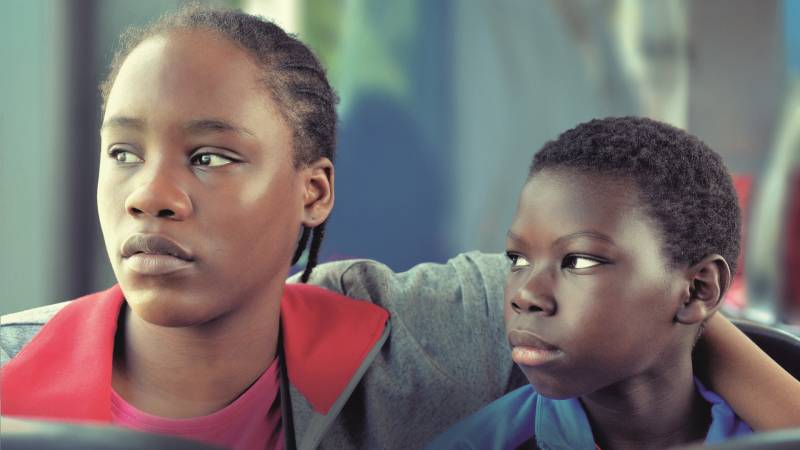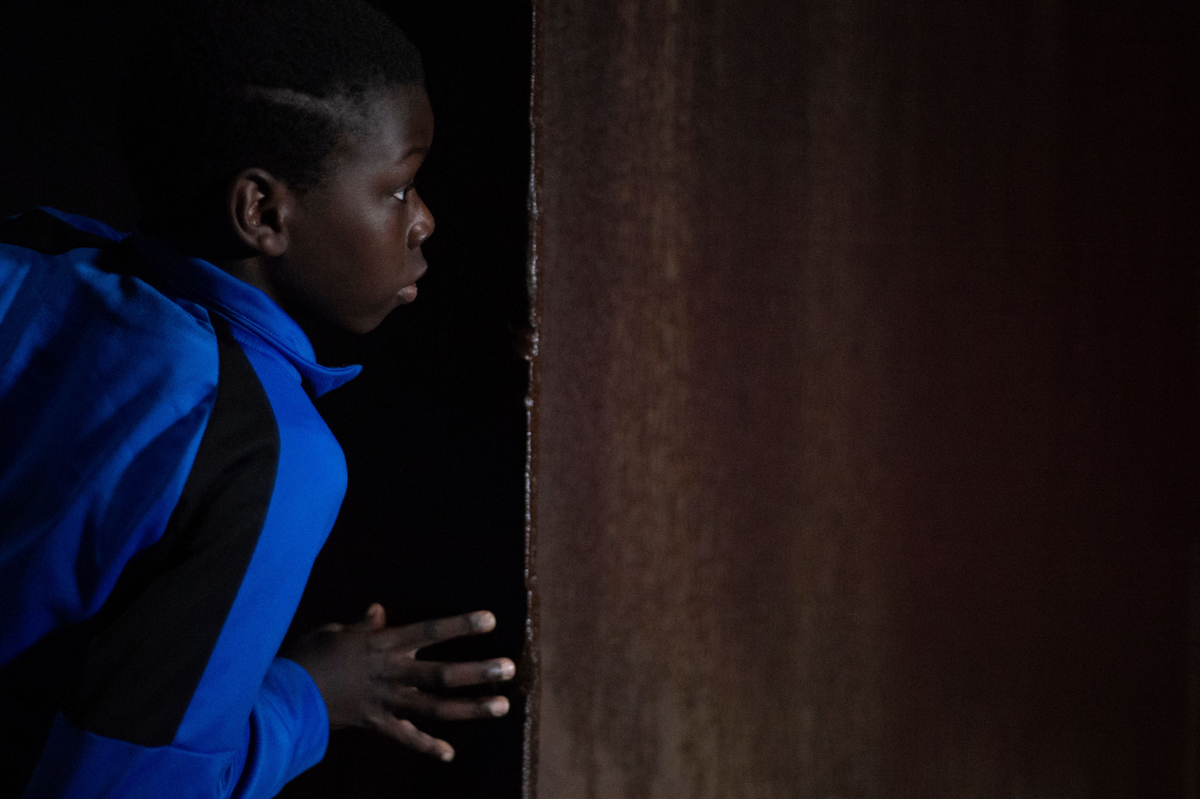Seventeen-year-old Lokita and 12-year-old Tori routinely introduce themselves as siblings, but they aren’t related. They made a connection on the smugglers’ boat from Africa to Italy, long before they got to Belgium. Their bond is now crucial to their survival. That kinship, more than their plight, is the heart and marrow of the Dardenne brothers’ engrossing new street saga, Tori and Lokita.
The movie opens on Lokita, in close-up, responding to an immigration officer’s gentle testing of her assertion that she is Tori’s sister. It’s a high-stakes game of truth or consequences: Lokita needs proper status and papers to get the legit, in-home care job she covets. We infer that Tori was granted asylum pretty quickly, hence the sibling-piggyback scheme they’ve concocted.
Out of the gate, it’s easy to root for the protagonists of Tori and Lokita (opening Friday, March 31 at the Opera Plaza Cinema following its prize-winning premiere at Cannes last year). They are lovely singers, dueting in an Italian restaurant to earn pocket money. But their smiles are illusory; there’s nothing carefree about their existence.
You don’t need to have seen any of Jean-Pierre and Luc Dardenne’s haunting neorealist parables (La Promesse, Rosetta, The Son, The Child, Lorna’s Silence, The Kid with the Bike) to recognize that Lokita and Tori (who are played by nonprofessionals) are targets for exploitation — casualties of capitalism, if you will — even in affluent, cosmopolitan Europe. We know the landscape: With few contacts or resources, they have no margin for error.

Lokita (Joely Mbundu) is squeezed between long-distance commands to send her mother money for her five brothers’ school admittance fees and in-her-face demands to repay the church-affiliated hoods in cahoots with the smugglers. (Those are all the details the Dardennes give us, just enough to extrapolate the patriarchal and institutional injustice that circumscribes Lokita’s life.)




